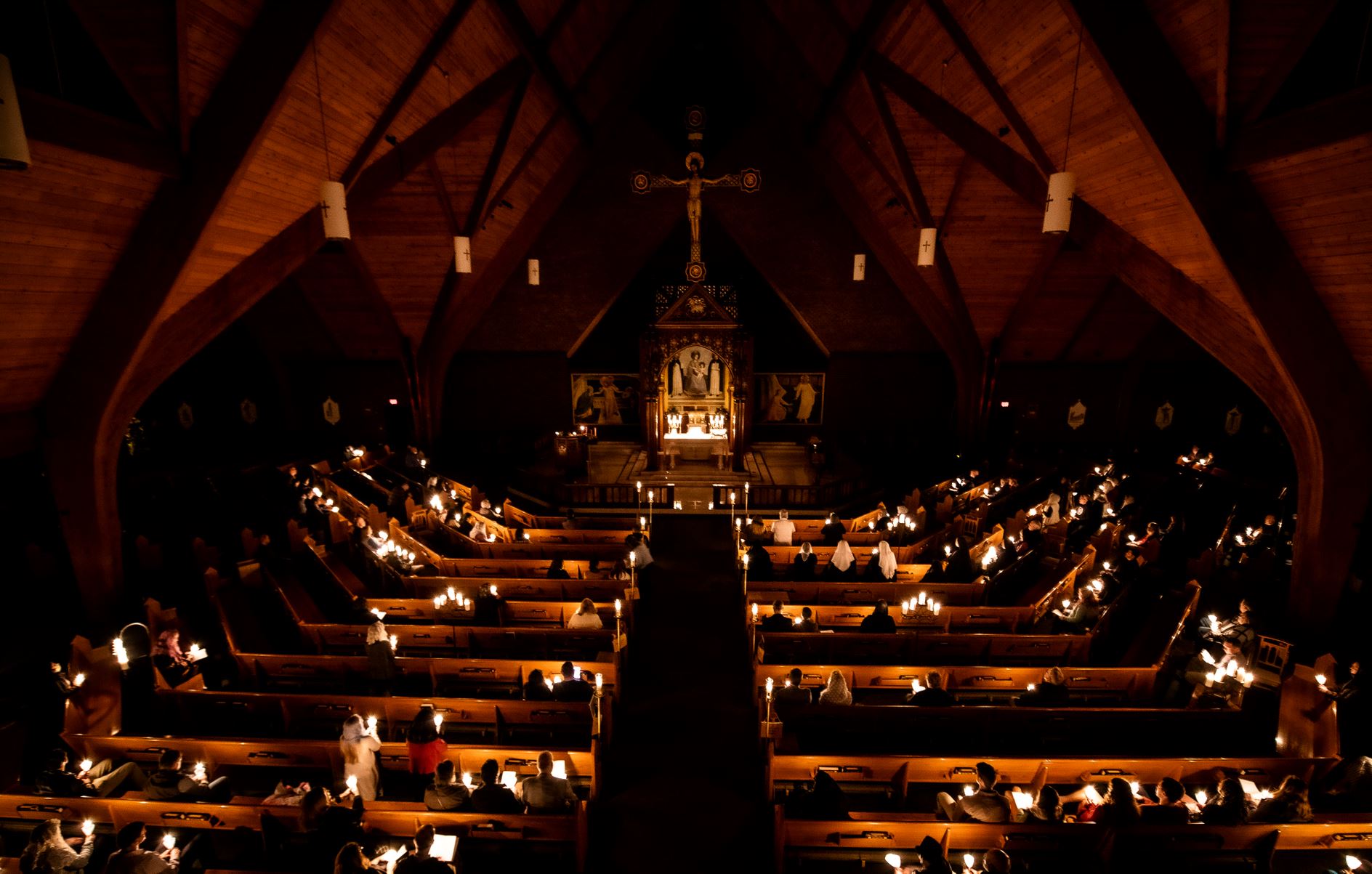Catechesis on the Liturgy
Ritual as a Guardian of Meaning
Last week we looked at the theme of how God sets the terms of our encounter with Him. This week we will explore another - that formality is not a barrier to intimacy but rather the door to it! It must be asked, why would we ever see formality as an obstacle? At least two answers can be given, one ancient and the other rather new. The ancient is that our fallen nature (so vividly captured in the image of the arm outstretched towards the forbidden fruit) constantly tempts us to try and seize, rather than patiently wait and graciously receive. It is just these latter dispositions which formality helps to protect and foster. The second answer follows up the first but is more particular to our times. Whereas man once tried to build a tower up to heaven, now he has turned to burrowing into protons and neutrons, subjecting everything to the criterion of empirical measurement and pronouncing the results to be the only indisputable reality. It is ironic that with the increasing discovery of order in the physical universe, man rejected the parallel implication of an equally objective order regarding the soul, the moral law, and the purpose of life. Instead, spurred on by increasing technological mastery and a desire for unfettered liberty, he could declare, in the words of one fateful Supreme Court decision ( Planned Parenthood v. Casey ) “at the heart of liberty is the right to define one’s own concept of existence, of meaning, of the universe, and of the mystery of human life.” Not only has the forbidden fruit of complete self-determination proven deadly (as happens whenever one person’s fabricated universe is not welcoming of all others), but also exceedingly bitter. Rather than fulfillment, there is emptiness; rather than passion, there is boredom. Perhaps the most telling sign of the modern predicament is the tragically mounting suicide rate. A 2013 cover article of Newsweek, treating of the modern suicide pandemic, could not help but notice “...an accelerating paradox. Over the last five decades, millions of lives have been remade for the better. Yet within this brighter tomorrow, we suffer unprecedented despair. In a time defined by ever more social progress and astounding innovations, we have never been more burdened by sadness or more consumed by self-harm.” [1] The paradox begins to dissolve, however, if one is willing to acknowledge a deep connection between the two statements quoted above, namely, between a new concept of liberty and unprecedented despair.
Last we explored the theme of the transcendence and immanence of God and concluded on three points. We will now attempt to unpack the first of these points in more detail – that God must set the terms of our encounter with Him.
In this installment of our Liturgy series, we will explore just one very deep and fascinating theological principle - the simultaneous transcendence and immanence of God - and then see how this is reflected in the Liturgy. What does it mean to say that God is entirely transcendent? By this one word we indicate that God is not a part of creation but entirely above and outside of it, that He cannot be “moved” by anything outside Himself. For Him there is no time, all is an eternal “now”. He never changes nor reacts in response to creation but rather is the very source of it. We might say in one neat phrase that “God plus the world never yields a sum any greater than just God Himself.” We might at first be alarmed if we perceive that this seems to entirely remove God from worldly affairs, but in fact, the very opposite is the case. Because God is not just one more agent within the drama of creation, but entirely outside of it, He can also enter into each and every part, no matter how small. When we realize that God does not simply dwell “in” us, as a guest in a house or even a lord in his manor, but that at each and every moment He unfolds and sustains our very being, we can exclaim with St Augustine “You are more intimate to me than I am to myself!” Another way of saying this is that it is precisely because God is infinitely big that He can also be infinitely small, that He who holds the whole universe in His hand may also be entirely present to even just one individual soul.
As we begin our series of liturgical catechesis it will be helpful to begin with the most expansive, theological view possible. Just as it is better to know how to fish than to simply be given a fish, so too it is far greater to understand the very nature of liturgy in all its forms (and there are actually many beyond the two currently found in the Western, or Latin Church) before exploring in-depth just one of them.

